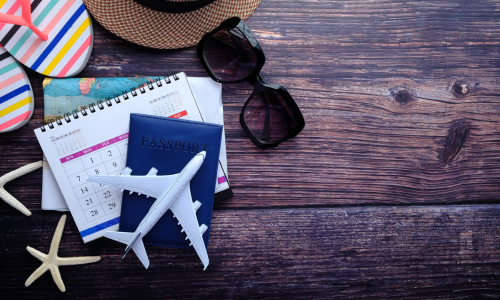Traveling is an exhilarating experience that broadens our horizons and creates cherished memories. However, amidst the excitement, it’s crucial not to overlook safety precautions. Whether you’re an experienced globetrotter or a first-time adventurer, prioritizing safety is paramount. By following a few essential precautions, you can ensure a smooth and secure journey.
1. Research your destination:
Before embarking on a trip, gather information about your destination. Understand the local customs, laws, and potential risks. Familiarize yourself with the political climate, healthcare facilities, and emergency contact numbers. This knowledge equips you to make informed decisions and minimizes the likelihood of finding yourself in precarious situations.
2. Travel insurance:
Acquiring comprehensive travel insurance is non-negotiable. This coverage safeguards you against unexpected medical emergencies, trip cancellations, lost baggage, and more. Review the policy thoroughly to understand its scope and limitations. Having insurance adds an extra layer of security and peace of mind.
3. Share your itinerary:
Inform a trusted friend or family member about your travel plans, including your itinerary, accommodation details, and contact information. Regular check-ins can provide reassurance to your loved ones and serve as a lifeline in case of emergencies.
4. Stay updated:
Keep track of current events and travel advisories related to your destination. Government websites and travel forums often offer valuable insights about potential risks, health concerns, or any ongoing conflicts. Staying informed allows you to make real-time adjustments to your plans if necessary.
5. Secure your belongings:
Pickpocketing and theft can occur in even the safest of places. Invest in a quality anti-theft backpack or purse, and use locks for your luggage. Keep essential items like passports, credit cards, and electronics in a concealed pouch or a hotel safe.
6. Health precautions:
Prioritize your health by researching any vaccinations required for your destination. Carry a basic first aid kit that includes essential medications, bandages, and personal prescriptions. Hydration and proper nutrition are equally important for maintaining your well-being during your travels.
7. Be cautious with public Wi-Fi:
While it’s tempting to connect to free public Wi-Fi, these networks can be vulnerable to cyberattacks. Avoid accessing sensitive information or making online transactions while on public networks. Consider using a virtual private network (VPN) for added security.
8. Cultural sensitivity:
Respect the local culture and traditions of your destination. Dress appropriately, adhere to local customs, and be mindful of your behavior in religious or sacred sites. Being culturally sensitive not only enhances your experience but also minimizes any potential conflicts.
9. Trust your instincts:
Intuition is a powerful tool. If a situation or person feels uncomfortable or unsafe, remove yourself from it. Whether it’s choosing not to enter a dimly lit alley or declining unsolicited offers, trusting your gut can prevent you from being in compromising situations.
10. Emergency preparedness:
Familiarize yourself with the emergency exits and procedures at your accommodation. Carry a charged phone, a power bank, and a local SIM card if applicable. Having a basic understanding of the local language or common phrases can also be incredibly helpful.
In conclusion, embracing a safety-first mindset while traveling can significantly enhance your overall experience. By conducting thorough research, investing in insurance, and practicing cautious behavior, you can reduce the likelihood of encountering risks and focus on the joy of exploration. Remember, the goal is not to eliminate adventure but to ensure it is enjoyed responsibly and securely.
Also, Read – https://yestourister.com/must-have-travel-gadgets-for-every-adventure/

Be the first to write a comment.